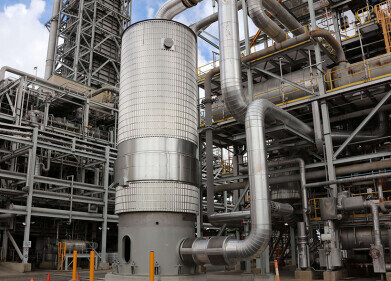Air Clean Up
EU sets 'ambitious targets' to reduce trans-boundary air pollution
May 09 2012
The European Union has announced that it is to update the Gothenburg Protocol, setting more ambitious targets to reduce trans-boundary air pollution.
According to a recent statement, the EU is looking to revise the Gothenburg Protocol with a goal of reducing emissions by around 60 per cent for sulphur, 40 per cent for nitrogen oxides, 30 per cent for volatile organic compounds, six per cent ammonia and 20 per cent for particulate matter compared to 2005 levels.
European Commissioner for the Environment Janez Potocnk said in the statement: “This is a significant step forward in protecting citizens’ health and the environment. For the first time, we have an international agreement that acknowledges the link between air pollution and climate change. By agreeing to regulate one of the contributors to climate change, ‘Black Carbon’, we will see positive impacts at both local and international level."
Danish minister for the Environment, Ida Auken endorsed the statement, saying that is was a required move in order to reduce air pollution in Europe. He added that the achievements were particularly important because they establish a multilateral agreement, with movements being made across North America and eastern neighbouring countries.
The Gothenburg Protocol was established in 1999 to set emission ceilings for sulphur, oxides of nitrogen (NOx), volatile organic compounds (VOCs) and ammonia. These limits were said to be "negotiated on the basis of scientific assessments of pollution effects and abatement options”.
As well as this, the Protocol also sets tight limit values for specific emission sources (such as combustion plant, electricity production, dry cleaning, cars and lorries) and requires best available techniques to be used to keep emissions down.
Revising the plans will offer a fresh outlook on how we have improved since the agreement was first made in 1999. What is noticeable is a renewed sense of optimism seems to be spreading, as well as a recognition that these goals are achievable. But the most important result of the talks is the international scope that they have, moving pollution control and air quality matters beyond the confines of certain states.
Events
May 13 2024 Munich, Germany
May 23 2024 Beijing, China
May 23 2024 Beijing, China
Jun 10 2024 Algiers, Algeria
Jun 10 2024 Frankfurt, Germany














